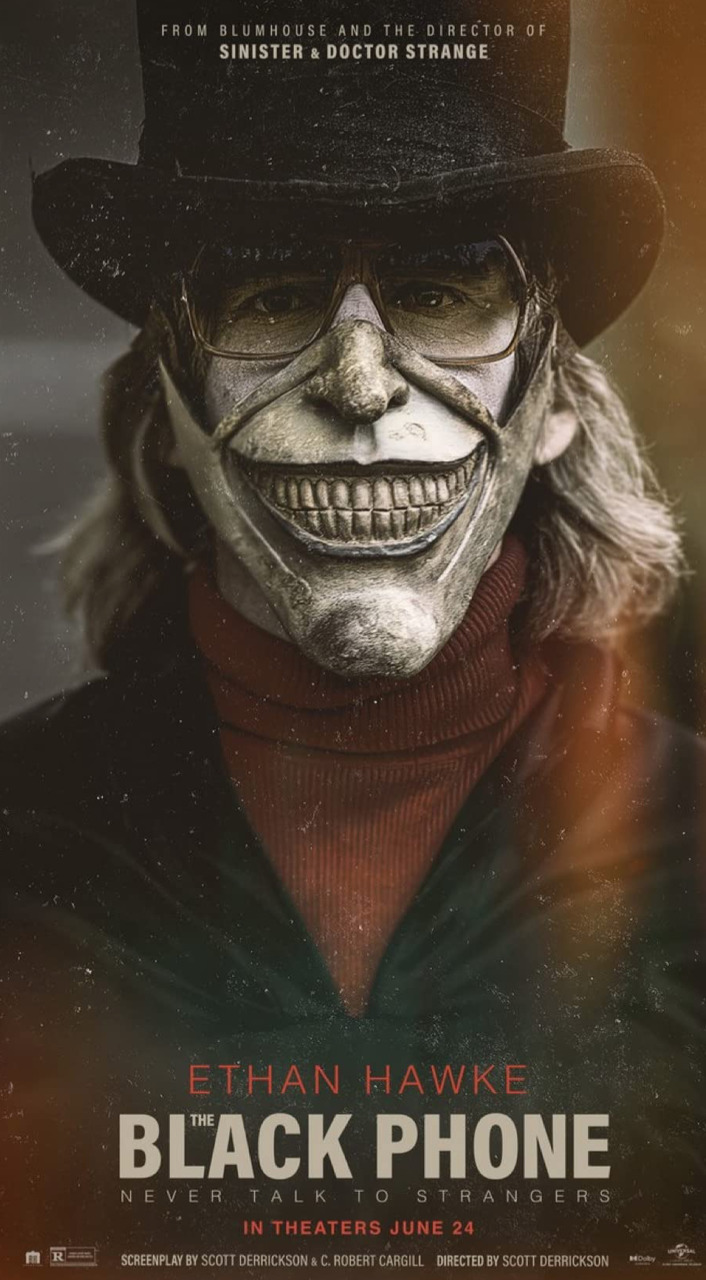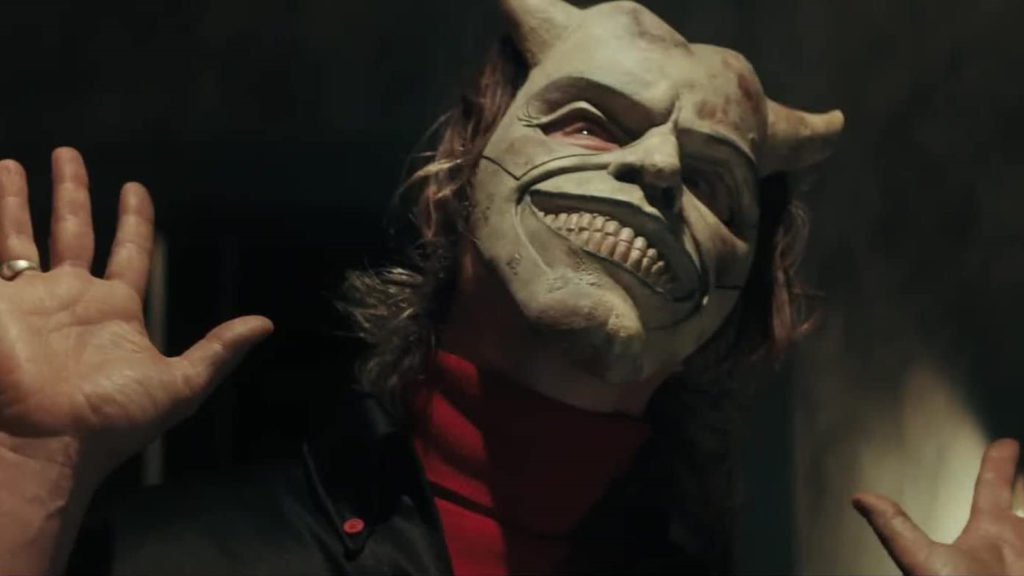
When director Scott Derrickson and co-writer C. Robert Cargill unleashed Sinister onto the world in 2012, they were shot into a new legendary status in the horror community. While the two teamed up for more releases from other horror films to the first Doctor Strange movie, they find themselves back in that Sinister aura for the first time since 2012 with their new film The Black Phone. Reteaming with actors Ethan Hawke and James Ransone Derrickson and Cargill look to turn the horror world on its ear again with their adaptation of the Joe Hill short story of the same name; but do they succeed?
in 1978, a small town in Colorado is being terrorized by child kidnapper dubbed, “The Grabber.” Finney (Mason Thames) and his sister Gwen (Madeline McGraw) are wary about their surroundings, but also are usually on their own. Their father is a terrible drunk who beats them for the smallest little things.
Risking being seen by “The Grabber” is a better life than dealing with the pain the receive at home. Finney’s life all-around is not the best. Bullies terrorize him at school, he has a hard time communicating with anyone other than his sister and his only friend, Robin (Miguel Cazarez Mora).
It doesn’t take long though for Finney to find himself captured by “The Grabber,” where he will soon find out what happened to those who were taken before him…or maybe he can escape with some help from a strange place.
I will warn you now, there will be some slight spoilers in the rest of this review. It is hard to discuss my issues with The Black Phone, without talking about specific plot points in some detail. The Black Phone overall isn’t a terrible film, and it has its positives. Ethan Hawke is very well balances and menacing as “The Grabber.” The design of his mask that ultimately comes in interchangeable pieces is quite clever. And Mason Thames as Finney does a fine job carrying most of the film where his other young counterparts come off as wooden and stale. But The Black Phone is wrapped up in a very flimsy package.

From minute to minute Finney’s level decision making and smarts shift to both ends of the scale depending on where the film wants to go.
One minute he is whip smart and analytical, and the next he is oblivious to the obvious signs around him. Ultimately, he gets help from the souls of the boys who have died before him. They communicate with Finney through the disconnected black phone that hangs in his basement prison. At one point, one of the ghosts clues Finney into a rope that was hidden in his cell that he can use to reach the grated window that rests high up on the cement walls. If Finney can open it up he can at least call for help.
He grabs the rope and when he has a problem hooking it onto the grate, he uses one of many rolled up rugs in the corner of the room to defy physics and latch it onto the grate. Let’s also not forget that early on he tried to jump up to the window but just needed a little lift and tried to move the bolted down bed over to give him that life, but he never just stood on one of the many rolled up rugs he could have made a small staircase out of to get the job done. With the rope now attached, he tries to climb up to the window but the grate pops off, sending Finney crashing to the ground. His hopes of reaching the window are gone. Except again, he could have used the rugs to hoist himself right up and escape now that the grate is gone. But instead, he gives up.

What these ghosts are ultimately doing are not helping him directly escape, instead they want to give him little pieces to help him stand up for himself. He constantly lets his father and those bullies step all over him. They want to teach Finney how to stand up to those who terrorize him. It’s a nice idea, but when it comes to “The Grabber” he stood up for himself form the first second. He attacked him with his little NASA spaceship flashlight; which is a wasted story device. He constantly tries to do things to escape (except for the best ideas like break the many glass sprite bottles that are left with down there with him, hide behind the door and stab “The Grabber” when the door opens.) His dealings with “The Grabber” are different from the rest of his life.
The real issue is (and this is a big spoiler in some ways), is that even after he escapes…he doesn’t get to stand up for himself against his father. Instead, Dad comes running to his son’s knees, crying and begging for forgiveness. Finney says nothing to his father. He doesn’t stand up and say, “You’ll never touch us again, you understand?” Or anything meaningful. What did Finney learn from his ghostly guides other than how to escape one situation? There are missed opportunities to further explore issues of abuse for both Finney…and “The Grabber.”
The Black Phone isn’t even very scary. It can be a little atmospheric at some points, but it shoe-horns in things that don’t matter. It even tried to throw in a last minute twist that is completely unnecessary and is there for no reason. The Black Phone tried too hard to make a film out of what should have just stayed a short story, where it works.
Final Grade: C-

